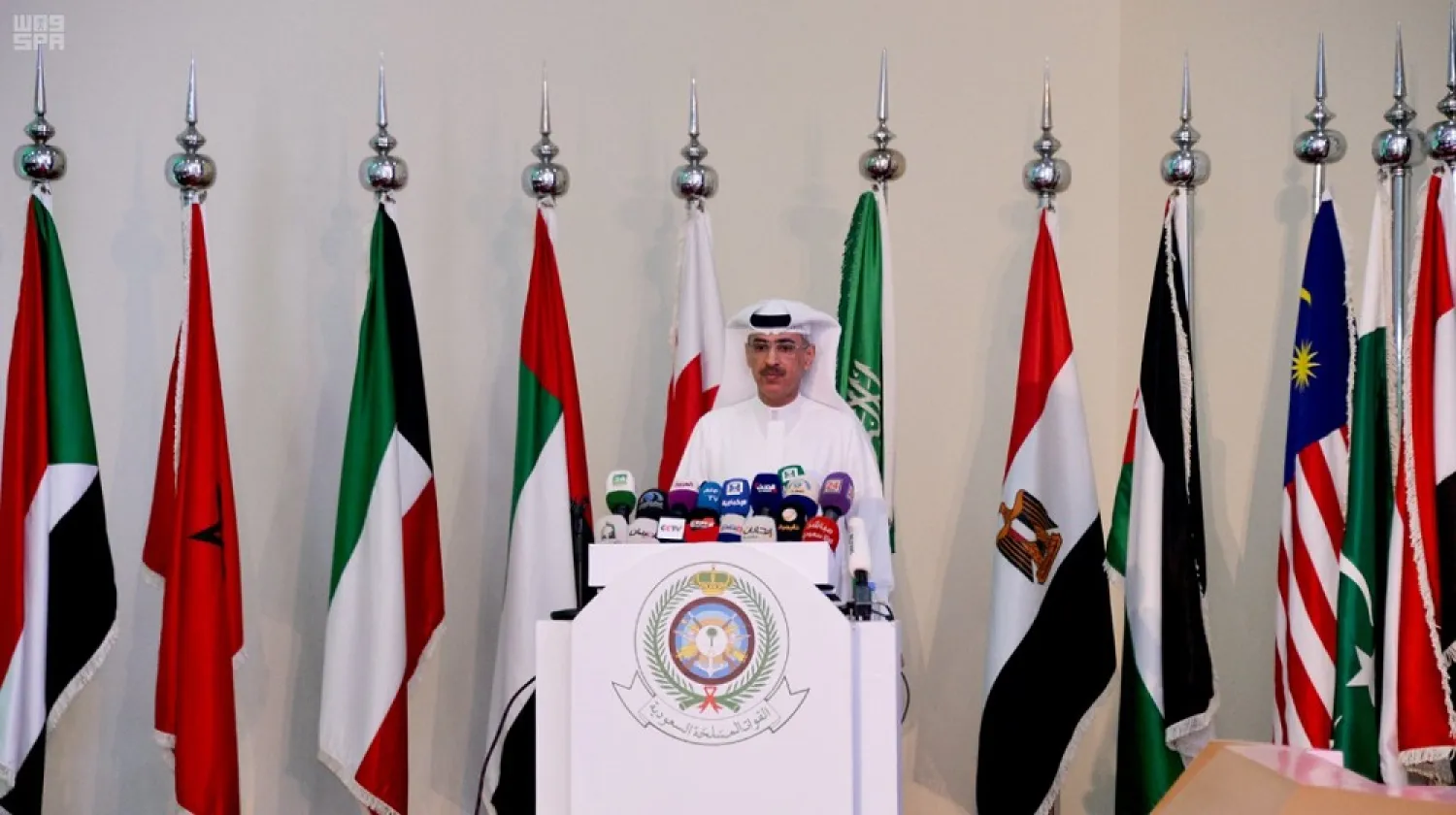The Joint Incident Assessment Team (JIAT) in Yemen refuted on Sunday allegations against the Saudi-led coalition by the United Nations Commission on Human Rights and Human Rights Watch, saying that strikes in the war-torn country adhere to international laws.
Team spokesman and legal advisor Mansour al-Mansour denied during a press conference in Riyadh accusations that the coalition was striking civilian targets, saying that they have all been military targets that fall within the jurisdiction of international law,
He said that the coalition received five complaints that it had struck illegitimate targets, adding however that the Assessment team’s investigations refuted them.
Four of the complaints were filed by UN-affiliated groups and the fifth was filed by Human Rights Watch.
Mansour addressed the UN High Commissioner for Human Rights report from August 2016, which accused the coalition of bombing al-Sabeen maternity hospital in Sana'a, killing two newborn children and wounding two medical staff. The hospital building was partially damaged.
JIAT assessed the incident, and reviewed all related documents, including the procedures and Rules of Engagement, the Daily Air Mission Schedule and verified the evidence. Intelligence information concerning military activities by former Republican Guard supporting the Houthi militia found that they based their forces inside the former Special Security Forces camp in Sana'a
Coalition forces targeted specific buildings inside the camp, which were legitimate military targets, using guided bombs that accurately hit the targets. However, due to the shockwave, the hospital suffered minor collateral damage, explained Mansour.
JIAT concluded that the coalition did not target the hospital, and the procedures followed by coalition forces regarding the military objective were correct, and in accordance with International Humanitarian Law
Mansour stressed that the coalition seeks to target military objectives and strikes are based on intelligence information.
Furthermore, he revealed that a committee was formed by a royal decree to follow up on the needs of those affected by the strikes.









